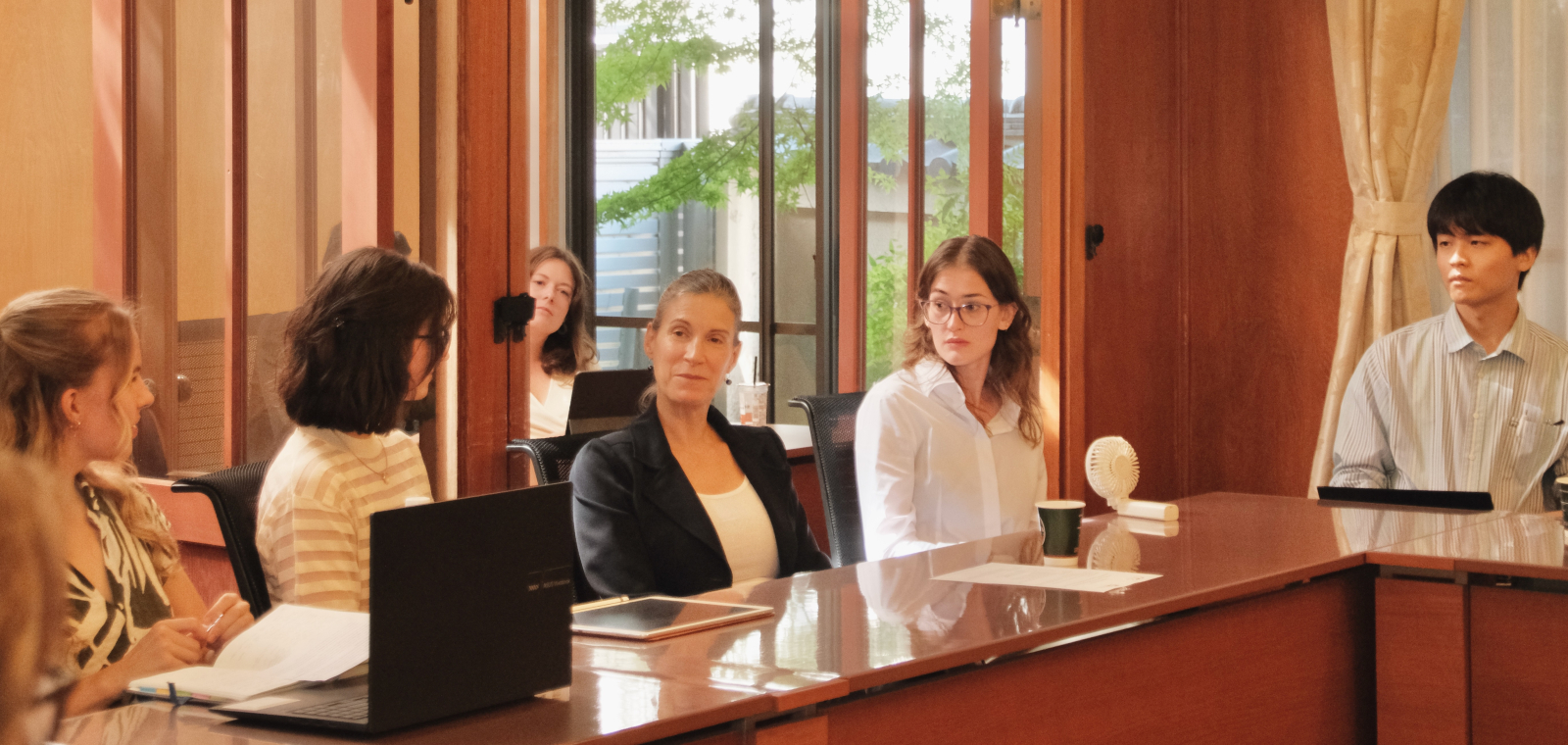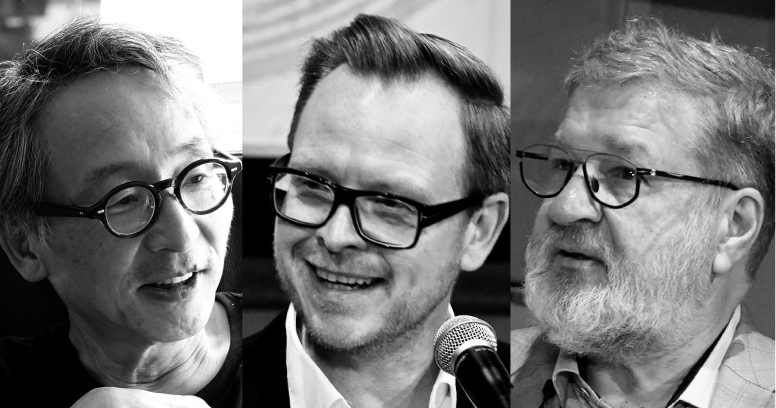Annual autumn seminar in Kyoto ponders the Social Ontology of AI

The Kyoto Institute of Philosophy (KIP) held an intensive seminar in Kyoto from Sept. 22 to 26 in collaboration with the Institute for Philosophy and the New Humanities (New York, USA). The seminar featured a keynote lecture by Professor L. A. Paul of Yale University, as well as workshops led by Professor Yasuo Deguchi of Kyoto University, the co-chairperson of KIP, and Professor Markus Gabriel of the University of Bonn, who serves as senior global advisor to KIP.
Details
This annual autumn seminar is made possible through the generous support of the Udo Keller Foundation (Germany). This year, it followed a one-week session at The New School for Social Research in New York earlier in September and then moved to Kyoto University for the second week. Sixteen fellows — graduate students and early-career researchers — from the University of Bonn, The New School and Kyoto University took part in a week of focused discussions.
The theme of the Kyoto seminar was the Social Ontology of AI. While typical AI user interfaces are designed to facilitate the illusion of a person-to-person interaction, users are in fact engaging with a vast “social” network distributed across human, non-biological and digital nodes, enabled by an infrastructure comprising human intellectual labor, data centers and energy resources. The 16 participants from Japan and abroad explored fundamental philosophical questions concerning how such sociality should be modeled, what its ontological status is and how it relates to human intelligence.
Professor Paul’s keynote lecture took place on the first day and was attended by around 40 participants, including members of the public. She examined the concept of transformative experience — experiences whose essence cannot be understood beforehand and which fundamentally alter one’s subjective perspective and preferences afterward. Her talk was followed by a lively discussion, featuring comments from Professor Fritz Breithaupt of the University of Pennsylvania and others, addressing issues such as the continuity of the self and the rationality in choosing what kind of experiences one will have. In addition, lectures and workshops were conducted by the co-directors, including Professors Deguchi and Gabriel, and participants also took part in the Inaugural Kyoto Conference held during the seminar period.
On the final day, participants visited Kifune Shrine and Kuramadera temple in northern Kyoto, where they deepened their reflections amid the region’s natural and spiritual atmosphere. Across the two weeks in New York and Kyoto, the young researchers strengthened their academic and cultural ties and parted with the promise of future reunions and collaborations.
Three graduate students from Kyoto University shared the following reflections on the seminar:
“I sought to bring together Professor Paul’s theory of transformative experience and Professor Deguchi’s notion of Self-as-WE to examine an AI-mediated society. While AI introduces a form of collective transformative experience of humans, the emergence and operation of AI depend on extensive WE-level collaboration. How we should act in a society where AI amplifies influence at the WE level is the question I intend to pursue in the future”.
“The lecture presented a situation in which AI could become a more human-like entity, —for example, by predicting and expressing emotions in language. Through discussions on the relationship between AI and social norms, I gained refined perspectives on whether AI should be regarded as equal to humans, as mere objects, or as products of collective action, which provides significant insights for my future research”.
“How do we make decisions when faced with transformative experiences? Within the self as doer — WE — who bears moral obligations, and in what way? How can we envision a Multilayered Society of Values? Through the intensity of diverse discussions, ranging from questions of existence to those of value, and international exchanges, seemingly distant ideas and perspectives began to resonate”.
Others



